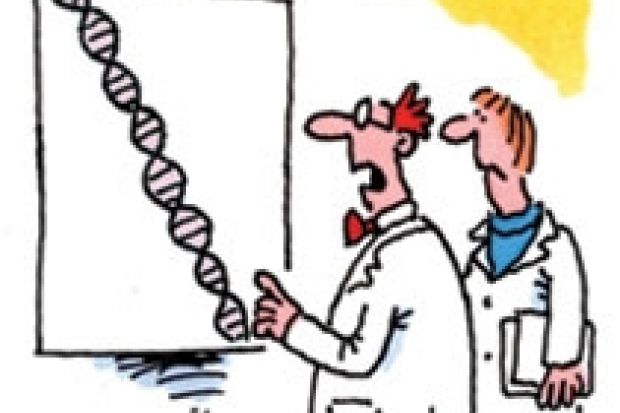As student protests spread, several ministers have been publicly confronted about the impending rise in tuition fees. But for Vince Cable, who like most Liberal Democrats signed a pre-election pledge to vote against any rise, the protests appear to have hit a particularly raw nerve. In a statement on October, the business secretary announced that he was cancelling a visit to the University of Oxford during which he was due to address students, citing advice from the police "about threats of a protest and his concern about the level of disruption this could cause, plus the cost of policing". If you say so, Mr Cable.
After a recent dearth of stories about Oxbridge students' insensitivity to the poor, a lacrosse team at the University of Oxford has restored the balance. In a report on 29 October, The Sun expressed outrage over the "female students forced into a booze-fuelled initiation ceremony - dressed up as BABIES". The participants drank alcohol from baby bottles and rolled on the floor wearing nappies, while older students, playing the role of "chav" mums, hurled abuse at them. One student told The Sun that the display was "extremely tasteless, especially as lacrosse is a sport played almost exclusively at private schools". Jolly hockey sticks, indeed.
The right- and left-wing press leaped on research suggesting that political leanings could be decided by a person's genes, but with predictably different results. The left-leaning Guardian mused that the findings by researchers at the University of California, San Diego and Harvard University could help its liberal readers understand "why you have a hankering to drive a Prius and drink lattes". The right-wing Daily Telegraph, however, saw even greater benefits. "Scientists have given mankind many blessings, but the discovery of the gene for left-wing behaviour must be foremost among them. For now there is a diagnosis, there can be a cure," it said on 29 October.
The Scottish government is considering raising tuition fees for English students in line with any increase south of the border, it was claimed on 31 October. According to a "source close to the Scottish (Nationalist) government", the government wants to match any hike to control the "cross-border flow". The Sunday Times said the plan could leave English students at Scottish universities paying huge sums while home and other European Union students could get off scot-free.
A year may have passed since he was sacked for likening the risks of taking ecstasy to those of horse riding, but age has not mellowed David Nutt. On 1 November, the former government drugs tsar was his usual contentious, independent-minded self in claiming that alcohol is more dangerous than heroin. The comparison is made in a paper co-authored by Professor Nutt and published in The Lancet, which ranks the risks of various drugs. Alcohol scores 72, heroin 55 and crack cocaine 54. Horse riding is not rated, but in light of Professor Nutt's previous remarks it would presumably be higher than ecstasy (nine) and LSD (seven).
There are protests, and then there are scholarly protests. Among the placards at the recent satirical Rally to Restore Sanity and/or Fear in the US was one reading: "What do we want? Evidence-based change! When do we want it? After peer-review!" Publishing a photo of the sign on 1 November, the website InsideHigherEd said: "We can't be sure, but we think this one may have come from an academic."
After the public funding cuts come the private fundraising campaigns. Just days after the University of Oxford hit the £1 billion mark in its drive to raise £1.25 billion, King's College London kicked off a campaign with a target of 500 million. On 3 November, King's principal, Rick Trainor, said that "in the current economic climate it is vital that universities step up their fundraising efforts". But others noted that not all institutions could call on well-heeled alumni. Les Ebdon, vice-chancellor of the University of Bedfordshire, said: "If we raise a quarter of a million pounds from charitable giving, we have had a good year."
Register to continue
Why register?
- Registration is free and only takes a moment
- Once registered, you can read 3 articles a month
- Sign up for our newsletter
Subscribe
Or subscribe for unlimited access to:
- Unlimited access to news, views, insights & reviews
- Digital editions
- Digital access to THE’s university and college rankings analysis
Already registered or a current subscriber?
